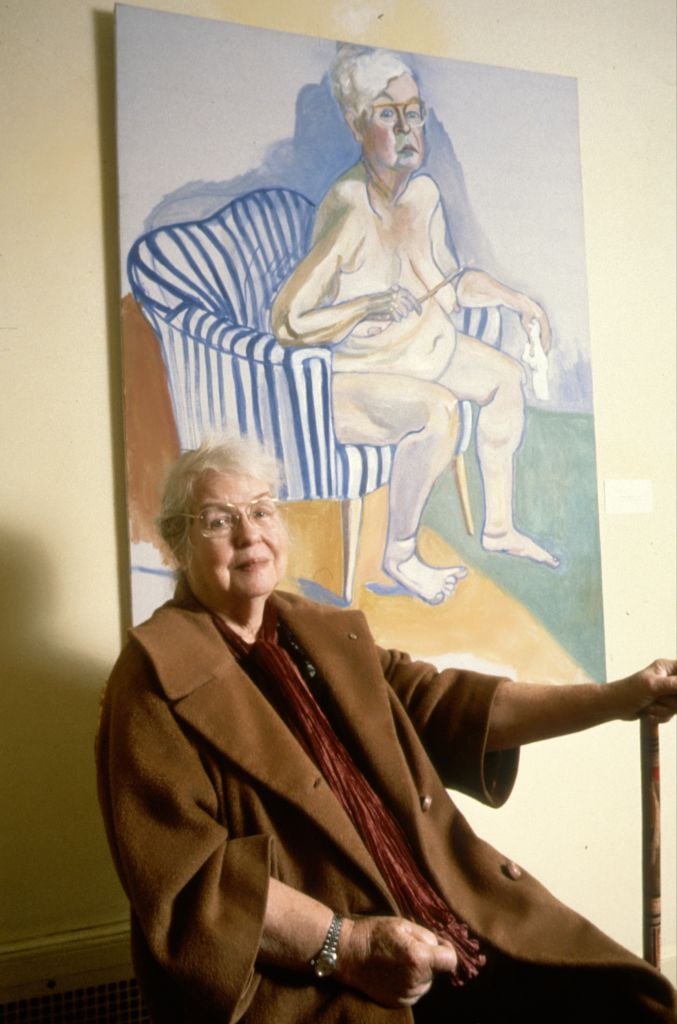
What’s the deal with Leonardo’s harpsichord-viola? Why were Impressionists obsessed with the color purple? Art Bites brings you a surprising fact, lesser-known anecdote, or curious event from art history. These delightful nuggets shed light on the lives of famed artists and decode their practices, while adding new layers of intrigue to celebrated masterpieces.
Alice Neel was born in 1900 and became one of the world’s most renowned portrait artists. But, it wasn’t until the artist was 80 years old that she produced her first self-portrait. “Life begins at seventy!” Neel once declared.
Neel did feature in her own paintings before her nude of 1980. Her 1930 Mother and Child shows her holding her daughter Santillana, who had died three years earlier from diptheria. She is seen with her back to the viewer in 1933’s Village Party, sat next to her lover the sailor Kenneth Doolittle. Self-Portrait Skull (1958) is an ink on paper portrait in which Neel transforms herself into a skeleton, with large black cavernous eyes and a wide-open mouth with several missing teeth.
Neel’s many portraits have often centered on women, pregnant women, and children, with one critic calling her a “collector of souls.” She painted several works of her close friend the author and graphologist Nadya Olyanova—one of which, Nadya Nude (1933), Neel termed a “New York Olympia,” referencing Manet’s 1863 work. Similarly to Self-Portrait (1980), Nadya Nude is an uncensored celebration of the female form. Neel also famously captured the vulnerability of pop art icon Andy Warhol in a 1970 portrait, showing the artist topless and revealing scars left from when the Pop artist was shot two years earlier by Valerie Sonalas.
Alice Neel, Andy Warhol (1970). © The Estate of Alice Neel, courtesy David Zwirner, New York/London.
But 1980’s Self-Portrait was Neel’s first painted portrait in which she—and she alone—was the subject. She is depicted sitting in a striped chair, fully nude besides her glasses, holding her paintbrush and a cloth. In it, Neel’s tender eye—the same one that saw Warhol’s scars—comes to the fore, as does her rejection of idealized femininity and beauty. “You can’t leave humanity out,” she once said. “If you didn’t have humanity, you wouldn’t have anything.”
The work took five years to complete, during which the artist was egged on by her son Richard who encouraged her to complete it after she had abandoned it for a period of time. She said that the “reason my cheeks got so pink was that it was so hard for me to paint that I almost killed myself painting it.”
Alice Neel in her studio with some of her work, circa 1980. Photo: Rose Hartman/ArchivePhotos/Getty Images.
Neel passed away from colon cancer four years after she created her self-portrait and one of her final paintings. The portrait was purchased in 1985 by the National Portrait Gallery and is held in the collection in Washington, but is not currently on public display.